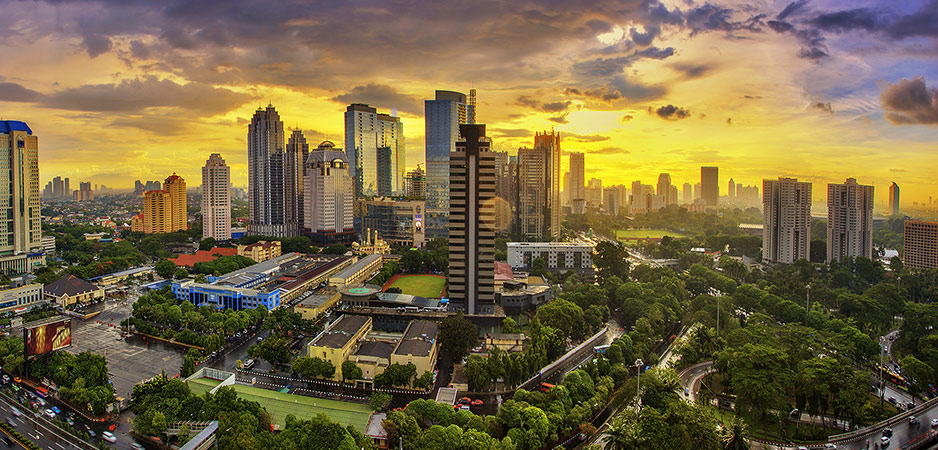Climate change is causing havoc around the world. Therefore, many countries are starting to tackle it. Indonesia is one of them.
Indonesia has set a target of 31.89% reduction in GHG emissions without international funding, and 43.20% with international support by 2030. This commitment is legally binding. This gives judiciaries a pivotal role in achieving this goal. Climate litigation is “an increasingly common and citizen-accessible area of environmental law.” Citizens increasingly use this form of litigation to hold countries and public corporations accountable both “for their climate mitigation efforts and historical contributions to climate change.”
In Indonesia, all climate-related cases are filed in the general court and led by certified judges in environmental law. The future holds increasing ecological challenges due to climate change, making it essential for Indonesia’s government to enhance its jurisdiction in order to mindfully regulate environmental laws.
In 2019, citizens and activists of Jakarta sued the government for poor air quality in central Jakarta court. This case was critical in the history of human rights in Indonesia as it voiced the citizens’ demands to improve the overall environment. The case reached a verdict after two long years in 2021. The verdict entailed appropriate penalties for the president, three of the ministers, and the governor, in order to implement appropriate actions against air pollution. This case has contributed to the climate litigation progress and movements in Indonesia.
Principles and Practice
This case consists of some principles related to environmental law as mentioned in Article 2, Law 32 of 2009. These include the principles of pollution pay, sustainable development and the precautionary principle. According to the pollution pay principle, Jakarta’s governor should be stricter in penalizing drivers who do not comply with permissible pollution levels for vehicles, businesses or activities that do not meet emission-quality standards. Due to this case, the governor issued regulation 66, regarding the exhaust emission tests of motorbikes in 2020. This added more than 15 air quality monitoring stations, and arranged emission inventory.
Air pollution negatively impacts health over many generations. Such pollution is not sustainable and violates the principle of sustainable health. Judges argued that the health ministry had violated the law by refusing to share any information regarding the polluted areas and the effect of the air pollution on public health.The health ministry also did not have the statistics about the decline in public health due to the air pollution. This goes against article 14 in presidential rule 41 of 1999. Therefore, there is a need for Indonesia to improve transparency among stakeholders.
Keeping in accordance with the precautionary principle, after the Kalimantan forest fires in 2017, the panel of judges requested the president to revise presidential rule 41 of 1999. Though the validity of this act has been questioned for 21 years, it has still not been reviewed by the president, signifying a failure to prioritize the regulations. Despite this, a ray of hope may still lie amongst the citizen lawsuits filed against air pollution in Jakarta. These lawsuits led the government to redesign the Baku Mutu Adara Ambien (BMUA), which translates as the Ambient Air Quality Standard, and could possibly be what encourages the prioritization of the pollution risks.
Strengthening Climate Commitments
This suit serves as an example for all Indonesians to approach the court of law with citizen lawsuits if their rights to a healthy environment are violated. The right to a healthy environment is a human right, and so, will be considered in court in any environmental case. The court’s decision to consider human rights a supporting element in Perbuatan Melawan Hukum (PMH), and their choice to present human rights experts in court are well-measured moves.
In addition to this case, the media also plays a crucial role in raising awareness about climate litigation in Indonesia. Presenting more cases and initiating discussions will increase critical thinking and optimism amongst citizens about the environment and their human rights.
The president and the ministries of Indonesia need to be held accountable for any violation of the BMUA rules. Jakarta’s air pollution is getting progressively worse. Along with Hanoi and Mandalay, Jakarta is the most polluted city in Southeast Asia. Their citizens’ life expectancy has reduced by three to four years on average.The verdict also probes the ministry of environment and forestry to strengthen the supervising roles of governors. The supervising roles of governors extend to the areas of forming policies on emission limits, management plans (RPPMU), power station units and other operating industries in each province. In order to further public participation and their faith in the government, there need to be mechanisms to penalize governors if found ineffective. This will showcase the nation and its judiciary’s commitment towards reversing climate change.
Indonesia continues to face challenges with solving the air pollution in Jakarta. For instance, the country has a limited number of judges specializing in environmental law who can address the potential rise in climate-related cases. Indonesia also needs to stop relying on coal power plants to attain its economic resilience due to its direct impact on air pollution. Furthermore, the public is still largely unaware of the urgency of the climate crisis.
Since climate-related cases are rising, Indonesia must train its young judges in environmental law. Cases alone will not do the trick and neither will judicial activism. Indonesian citizens have to take an active role in getting their representatives to draft laws to combat climate change. They also have to put pressure on the government to implement these laws through sensible policies. These policies must have goals and targets that can be measured, monitored and evaluated. Only then will Indonesia be able to play its part in combating climate change.
[Throvnica Chandrasekar and Harshitha Gadde edited this piece.]
The views expressed in this article are the author’s own and do not necessarily reflect Fair Observer’s editorial policy.
The views expressed in this article are the author’s own and do not necessarily reflect Fair Observer’s editorial policy.
Support Fair Observer
We rely on your support for our independence, diversity and quality.
For more than 10 years, Fair Observer has been free, fair and independent. No billionaire owns us, no advertisers control us. We are a reader-supported nonprofit. Unlike many other publications, we keep our content free for readers regardless of where they live or whether they can afford to pay. We have no paywalls and no ads.
In the post-truth era of fake news, echo chambers and filter bubbles, we publish a plurality of perspectives from around the world. Anyone can publish with us, but everyone goes through a rigorous editorial process. So, you get fact-checked, well-reasoned content instead of noise.
We publish 2,500+ voices from 90+ countries. We also conduct education and training programs
on subjects ranging from digital media and journalism to writing and critical thinking. This
doesn’t come cheap. Servers, editors, trainers and web developers cost
money.
Please consider supporting us on a regular basis as a recurring donor or a
sustaining member.
Will you support FO’s journalism?
We rely on your support for our independence, diversity and quality.








